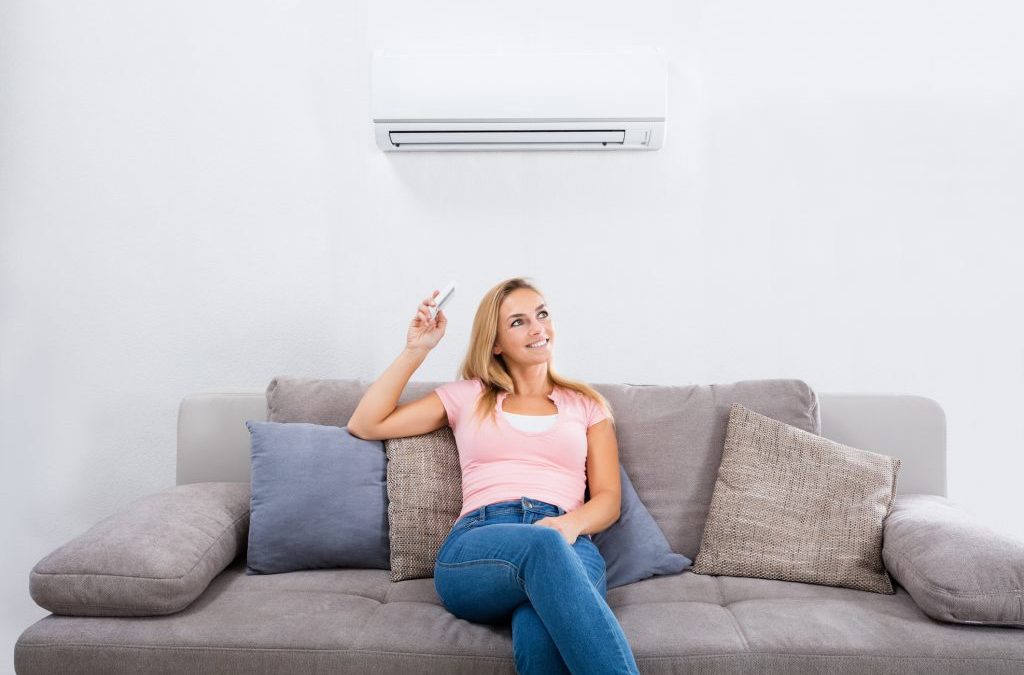As the temperature rises, your air conditioner becomes an indispensable ally in keeping your home comfortable and cool. To ensure that your AC system operates efficiently and effectively throughout the summer months, regular maintenance is crucial. By following these 10 air conditioner maintenance tips, homeowners can prolong the lifespan of their units, improve energy efficiency, and avoid costly repairs.
Top 10 Air Conditioner Maintenance Tips for Homeowners
- Replace Air Filters Regularly: Clogged or dirty air filters can restrict airflow, reduce cooling efficiency, and strain your air conditioner’s components. Check your air filters monthly and replace them every 1-3 months, depending on factors such as the type of filter, household occupancy, and pet hair. Clean filters promote better indoor air quality and help your AC system run smoothly.
- Clean the Condenser Coils: Over time, dirt, dust, and debris can accumulate on the condenser coils located on the exterior unit of your air conditioner. Use a garden hose to gently spray the coils and remove any buildup. Avoid using high-pressure water or abrasive brushes, as these can damage the delicate fins. Regular cleaning of the condenser coils improves heat transfer and enhances overall cooling performance.
- Clear Debris Around the Exterior Unit: Ensure that the area around the exterior unit of your air conditioner is free from debris, vegetation, and obstructions. Trim back any foliage or shrubs to maintain a clearance of at least two feet around the unit. This allows for adequate airflow and prevents airflow restriction, which can lead to overheating and reduced efficiency.
- Inspect and Clean Air Vents and Registers: Dust and debris can accumulate in your air vents and registers, obstructing airflow and reducing cooling efficiency. Regularly vacuum and dust your vents and registers to ensure unobstructed airflow throughout your home. Additionally, make sure furniture and other obstacles are not blocking the vents to allow for optimal air circulation.
- Check and Seal Ductwork: Leaky ductwork can result in cooled air escaping before it reaches its intended destination, leading to energy waste and reduced cooling performance. Inspect your ductwork for signs of leaks, gaps, or disconnected sections, and seal them using duct mastic or foil tape. Properly sealed ductwork improves energy efficiency and ensures that cooled air reaches every room in your home.
- Inspect Refrigerant Lines: Inspect the refrigerant lines that connect the indoor and outdoor units for signs of damage, such as leaks or corrosion. If you notice any issues, contact a licensed HVAC technician to diagnose and repair the problem. Proper refrigerant levels are essential for efficient cooling and preventing system damage.
- Schedule Professional Maintenance: While many air conditioner maintenance tasks can be performed by homeowners, it’s essential to schedule annual professional maintenance by a qualified HVAC technician. A professional inspection and tune-up can identify potential issues early, ensure proper refrigerant levels, optimize system performance, and prolong the lifespan of your air conditioner.
- Test Thermostat Settings: Verify that your thermostat is functioning correctly and set to the desired temperature. Consider upgrading to a programmable or smart thermostat for greater control and energy savings. Programmable thermostats allow you to schedule temperature adjustments based on your daily routine, while smart thermostats can learn your preferences and adjust settings automatically for optimal comfort and efficiency.
- Consider Shade for Outdoor Unit: Providing shade for the outdoor unit of your air conditioner can help reduce its workload and improve efficiency. Planting trees or installing awnings or shade sails can shield the unit from direct sunlight, lowering the ambient temperature and reducing the strain on the system.
- Know When to Replace: Despite proper maintenance, air conditioners have a finite lifespan. If your unit is more than 10-15 years old or if you notice frequent repairs, it may be time for a replacement. Newer models are often more energy-efficient and come with advanced features for improved performance and comfort.
By following these air conditioner maintenance tips, homeowners can ensure that their cooling systems operate efficiently and effectively, providing reliable comfort throughout the summer months. Regular maintenance not only extends the lifespan of your air conditioner but also helps you save money on energy bills and avoid costly repairs. With a little preventive maintenance, you can keep cool and comfortable all season long.



Recent Comments